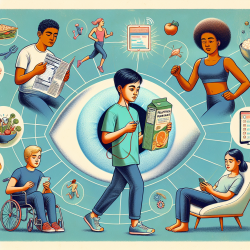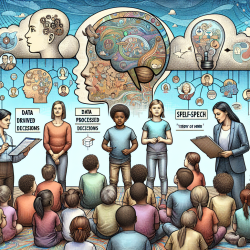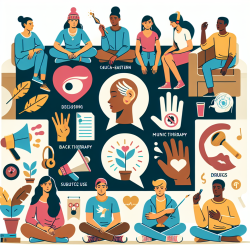Introduction
In today's fast-paced world, adolescents are often caught in a whirlwind of unhealthy lifestyle choices that can significantly impact their future well-being. A recent study titled "Relationships among Sleep Time, Physical Activity Time, Screen Time, and Nutrition Literacy of Adolescents: A Cross-Sectional Study in Chongqing, China" sheds light on the critical factors influencing adolescents' health behaviors. The findings emphasize the importance of adequate sleep, regular physical activity, and limited screen time in enhancing nutrition literacy (NL) among adolescents.
Understanding the Study
This cross-sectional study involved 18,660 adolescents from Chongqing, China, and explored the intricate relationships between sleep time, physical activity (PA) time, screen time (ST), and nutrition literacy. The study found that adolescents who maintained adequate sleep, engaged in regular physical activity, and limited their screen time exhibited higher levels of nutrition literacy. This correlation was particularly strong among junior high school students.
Key Findings
- Adolescents with sleep time ≥ 8/9 hours, PA time ≥ 1 hour, and ST < 2 hours per day had higher levels of NL.
- Junior high school students demonstrated higher NL levels compared to senior high school students.
- Adolescents not living in boarding schools and those raised by parents exhibited higher NL levels.
Practical Implications for Practitioners
As practitioners, understanding these findings can help in developing targeted interventions to improve adolescents' nutrition literacy. Here are some strategies:
- Encourage Adequate Sleep: Educate students and parents about the importance of maintaining regular sleep schedules to improve overall health and nutrition literacy.
- Promote Physical Activity: Integrate daily physical activities into school curriculums and encourage participation in sports and recreational activities.
- Limit Screen Time: Advocate for balanced screen time usage and promote activities that do not involve electronic devices.
- Parental Involvement: Engage parents in workshops and seminars to emphasize their role in fostering healthy habits and improving their children's nutrition literacy.
Encouraging Further Research
While this study provides valuable insights, further research is needed to explore the long-term effects of these behaviors on adolescents' health outcomes. Practitioners are encouraged to collaborate with researchers to develop longitudinal studies that can provide more comprehensive data.
Conclusion
Empowering adolescents with the knowledge and skills to make informed health decisions is crucial for their future well-being. By focusing on improving nutrition literacy through adequate sleep, physical activity, and limited screen time, we can pave the way for a healthier generation.
To read the original research paper, please follow this link: Relationships among Sleep Time, Physical Activity Time, Screen Time, and Nutrition Literacy of Adolescents: A Cross-Sectional Study in Chongqing, China.










